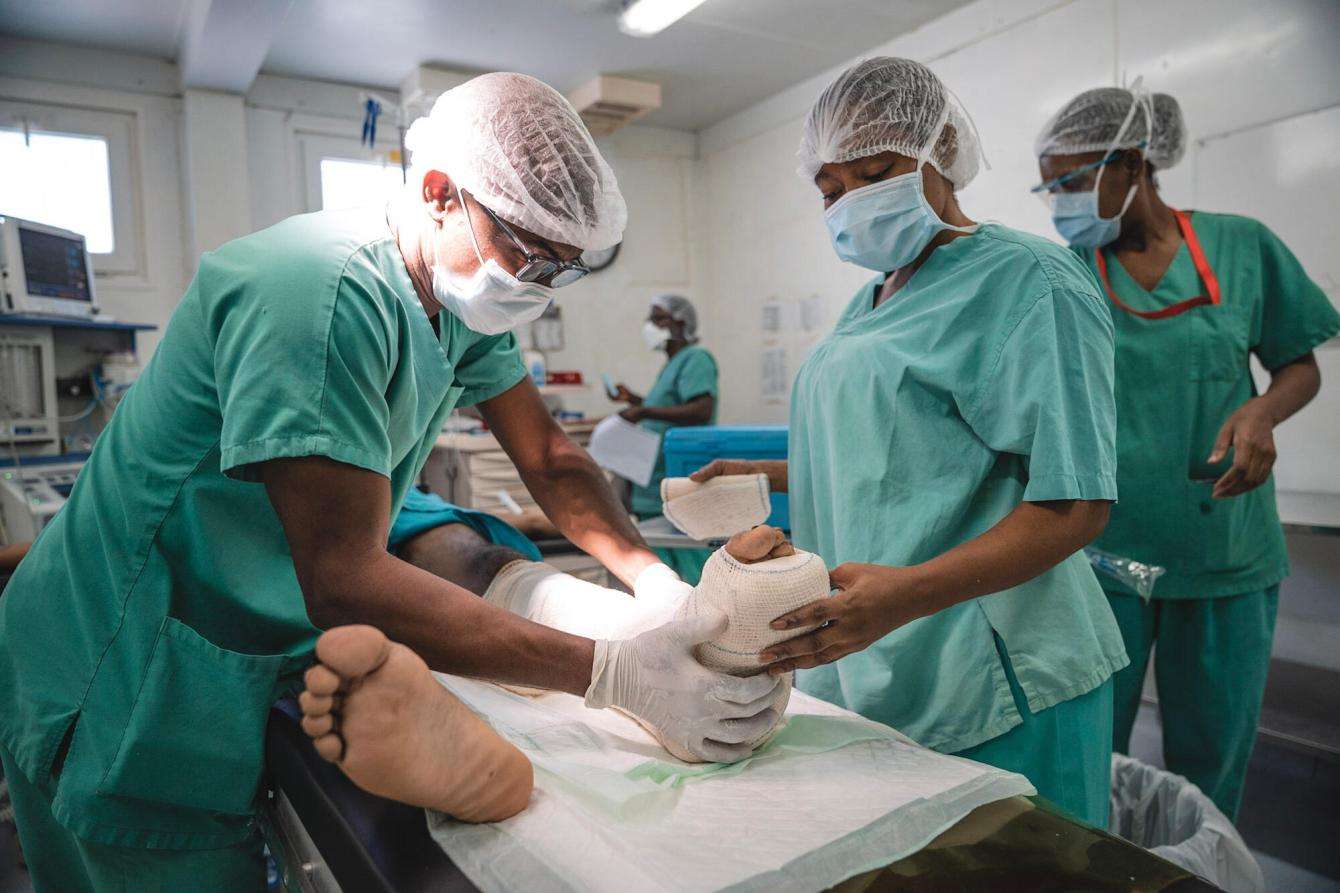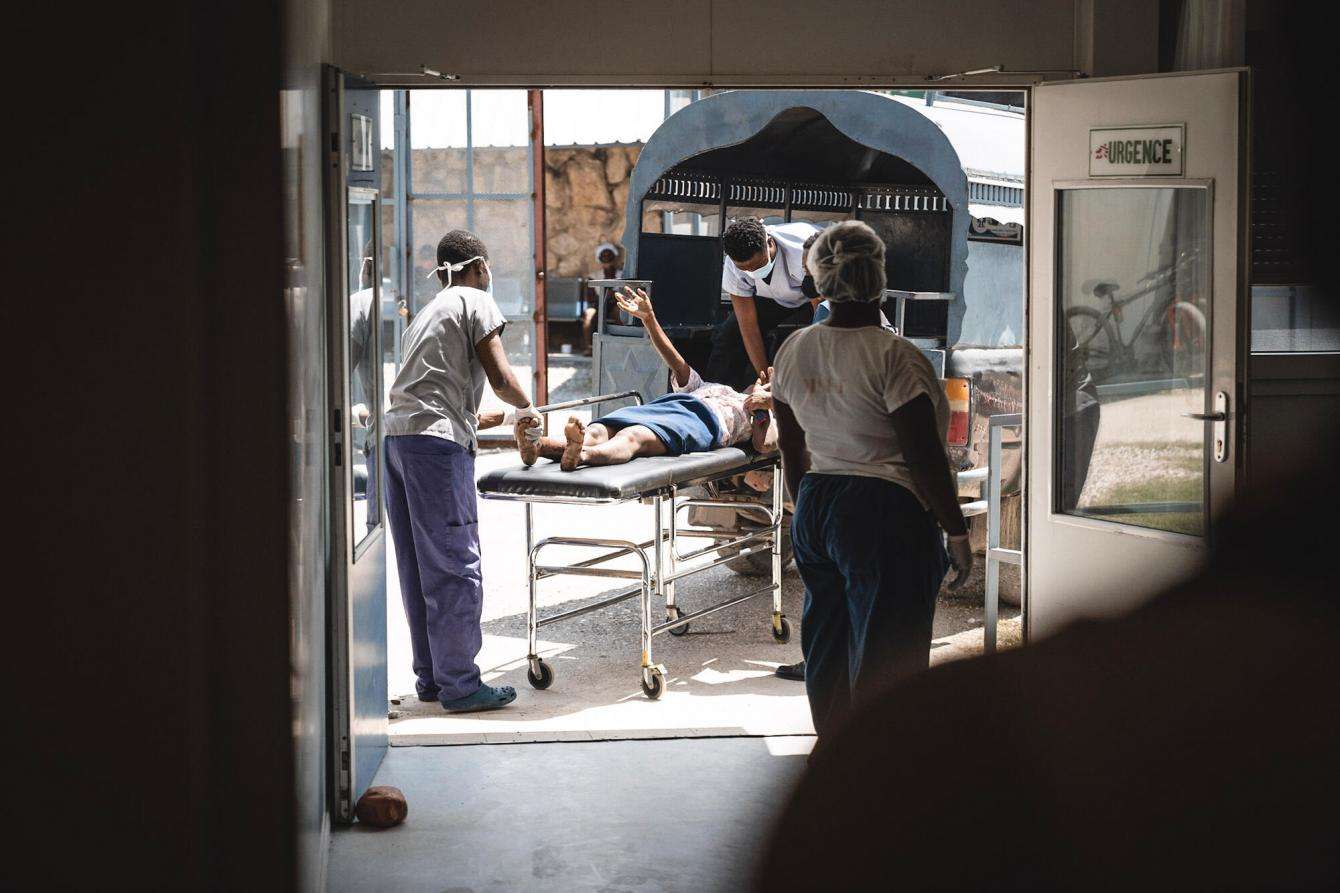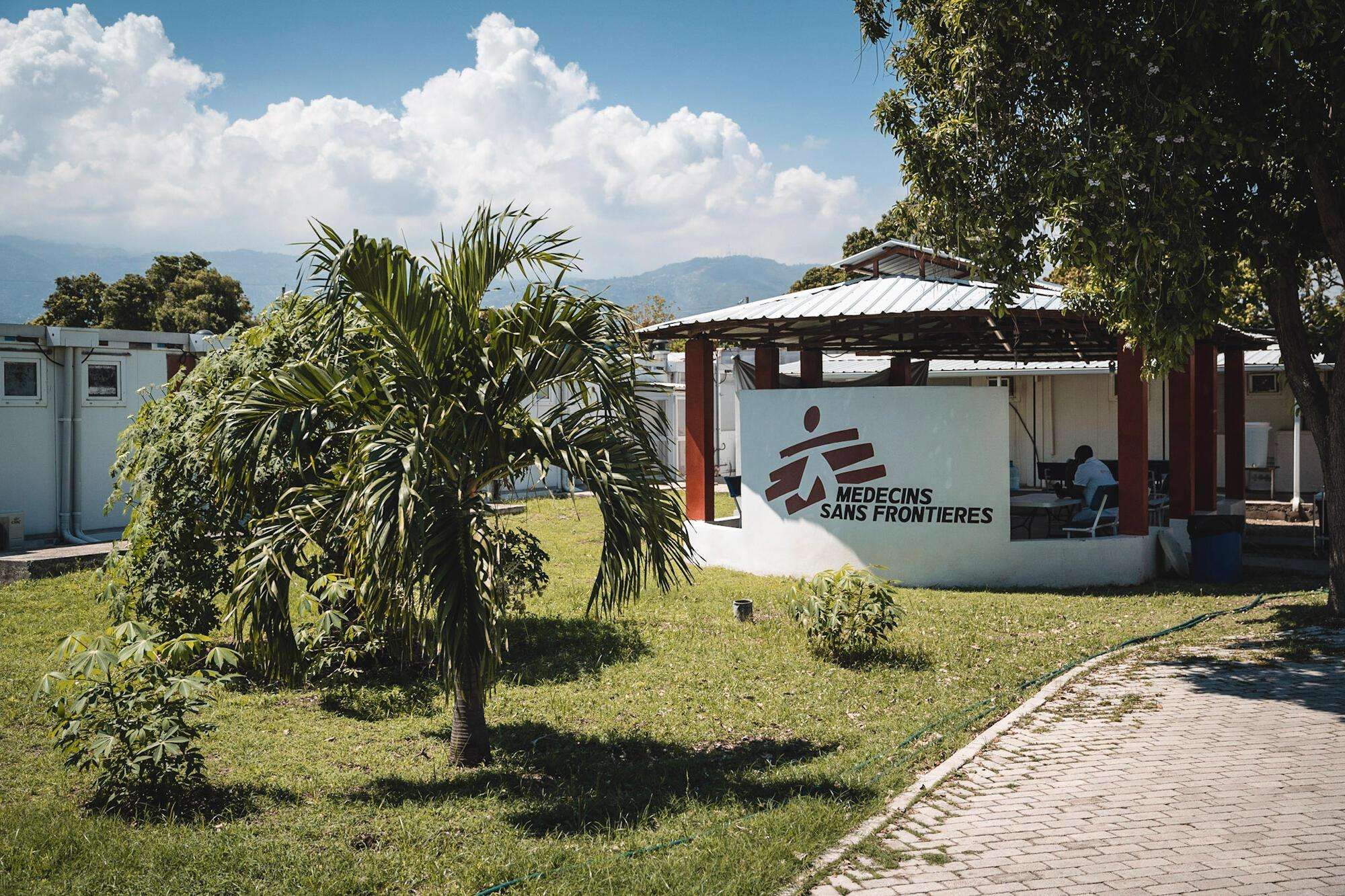In November 2021, political tensions in Haiti’s capital city, Port-au-Prince, made it nearly impossible for hospitals to stay open. Armed groups held up deliveries of fuel from the city’s main port, creating a widespread fuel shortage. The streets all but emptied of motor vehicles, and it was difficult and costly for health staff or patients to come in.
On top of a staffing crisis, the fuel shortage also disrupted supplies of electricity. Because Haiti’s electric grid is unreliable, most hospitals use their own diesel generators to power everything from lights to lifesaving medical equipment. As fuel for generators dwindled, many health facilities had to stop accepting new patients.
“Medical facilities in Port-au-Prince face the same challenges—no fuel, no electricity, no medical care,” said Jean-Gilbert Ndong, Doctors Without Borders/ Médecins Sans Frontière (MSF) medical coordinator, calling for fuel deliveries to resume.

At the MSF hospital in Tabarre, which treats patients suffering from life-threatening traumatic injuries or burns who often require weeks or months of specialized care, the staff did everything they could to conserve power and keep critical equipment running. With only a three-week supply of fuel left, they rushed to install solar panels that could extend the hospital’s electricity supply. Eighty-four panels were set up to inject power directly into the hospital’s electrical system and reduce the load on the generators by about 27 kilowatt hours per day. “The solar installation provides about 10 percent of the peak need of the hospital,” said Guillaume Brumagne, MSF logistics supervisor. “It does not replace the generator but reduces the power demand on the generator and therefore its fuel consumption.”
In the coming months, MSF plans to add another 320 solar panels to the Tabarre hospital.

By December, the fuel crisis had eased, and hospitals, including MSF’s, were able to return to normal operations. Still, political tensions have remained high in Haiti, and more fuel shortages are always a possibility. In the coming months, MSF plans to add another 320 solar panels to the Tabarre hospital, further reducing demand for fuel, increasing the reliability of power for medical activities, and sketching a blueprint for keeping MSF hospitals in other parts of the world running under even the most challenging circumstances.


